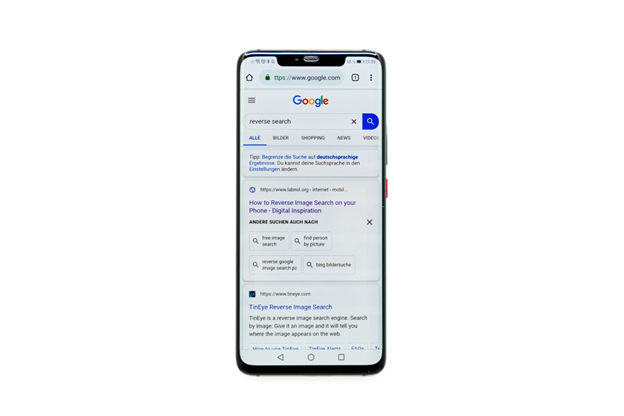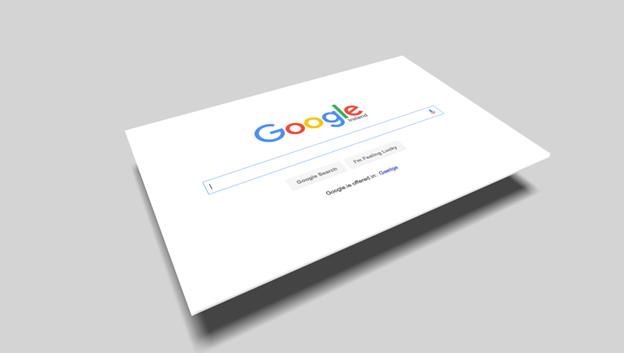There are many who claim that SEO is dead, and there is enough circumstantial evidence for them to back up this claim. The increase in video content, especially short-form video, has significantly changed the way individuals consume knowledge on the web. So while people might look for something they have a question about on Google first, these days you may discover that searching on YouTube or perhaps even TikTok first might give you the answer you’re looking for.
There’s no denying that the way individuals consume knowledge on the internet has actually been changing over the years; however, that definitely does not mean that SEO is dead. If that were true, Google wouldn’t be the most visited site on earth.
Google is visited almost 90 billion times each month. Since January 2022, Google represents a shocking 92% of the online search engine market. If anything, these statistics reveal that SEO is definitely here to stay. As long as Google continues to get the type of visitors it does, there will always be a chance to optimize content for higher rankings in the search engine result pages (SERPs.)
Google runs a variety of online services but the search engine continues to be among its most important and financially rewarding services. It’s no surprise, then, that the business is known for not resting on its butt as a search engine. Google is constantly trying to improve it’s search results for users. And it frequently releases both small and major updates for its search algorithm.
These updates are meant to improve the user experience for the billions of individuals that depend on Google every day to find answers to questions and search for the information they’re looking for. However, it can frequently be challenging for publishers to navigate these updates, because they can often lead to substantial drops in traffic and rankings.
One of Google’s most recent updates was released in August 2022. It was aptly named the Helpful Content Update.
What Is The Helpful Content Update?
The Helpful Content updates that Google regularly releases have the sole function of improving the quality of content that shows in search results in response to search queries. (Google just rolled out another Helpful Content Update on December 5, and it’ll take around two weeks to roll out completely. These Helpful Content Updates will be a frequent occurrence — so now is the time to understand what the Helpful Content updates are all about.)
Why is Google making this kind of update? Shouldn’t ALL content be “helpful”? Regrettably, a lot of people who write content for websites still try to game the system by writing content for the express purpose of ranking on the search results pages. They’re writing only for the search engines like Google, NOT for the users!
This type of content is typically light on the details that the visitor really needs to understand the topic they’re searching about and therefore they need to go to several websites and pages before they can discover all the right information they’re trying to find. In Google’s own words, the August 2022 update was meant to “help make sure that unoriginal, low-quality content doesn’t rank highly in Search.”
All writers create content with the hope of getting it to rank in Google searches. But really great writers know that their first obligation is to write for their audience. That should be their top priority.
This update won’t affect those content marketers who are creating quality content that matches the user intent of the people searching on Google. But website publishers who are only creating low-quality content that’s stuffed with keywords and doesn’t provide the visitor with valuable information that truly answers a searcher’s questions will likely see their rankings drop and their traffic take a hit following Helpful Content updates.
What You Should Do To Prevent A Drop In Rankings After The Helpful Content Updates
Keep Your Site Focused On The Topics You Specialize In
Google’s release notes for the update imply that it’s important for websites to have a niche — for you to specialize and be experts in specific areas and topics. Websites that have a primary topic or focus will be seen to potentially be of higher quality compared to those that have content without a specific focus. If one day you’re writing about how to make a garden salad and the next day you’re writing a blog post about how to do SEO, your content is obviously going to be unhelpful for visitors because you’re not really an expert in anything.
For example, someone searching for tips on how to improve their credit score would be surprised to see tips on woodworking on that same site. These types of websites could be flagged as low quality by the Helpful Content Update algorithm since Google might presume that a lot of content is being produced on different topics simply with the goal of ranking high on Google.
Focussing on specific topics that are similar in scope also makes it easier for Google’s crawlers to properly understand the site, its purpose and helps index the pages to be ranked.
Don’t Stray From Your Area Of Expertise
Google wants content writers to ask themselves a few questions, namely, when you’re writing, is thee content meant for the people reading your content or for the search engines? Are you writing about topics that aren’t related to the focus of the website simply because they’re trending and popular right now? Is the website offering advice on any niche area that it doesn’t have any real expertise in?
For example, if you have a website about car deals, your visitors would be a bit confused if they start seeing recipes for desserts. You might decide to write about desserts during the holiday season if you come across high-volume, low-competition keywords. But if you move forward with writing content outside of your area of expertise, Google might view it as an attempt to go way beyond the scope of your website simply with the goal to try and rank that web page higher on Google.
Focus On Providing A Good User Experience
Intent and experience now play a significant role in rankings on Google. For the keywords that people type into the search engine, the algorithm now understands the intent behind the query and shows the results it thinks most matches that intent.
Google is also placing weight on the reader experience. That means the visitor should leave your website feeling like they had a good experience and got the information they were looking for. For example, a reader might come to your website from Google and go through a lengthy post but still feel that their question is unanswered — so they leave after only a few minutes. This wouldn’t be a satisfying user experience and Goolge will see that they quickly left your site.
Avoid Trying to Answer Questions That Don’t Have A Definite Answer
Many publishers tend to write content that answer questions that don’t have a definitive answer. An article about the release date for a major superhero movie that hasn’t even been announced by the studio would be an example.
It’s up to the publisher to make it clear to the reader that the information that they’re reading is rumored and not conclusive. If this isn’t clear, the algorithm may feel the post to be misleading, causing the site to be flagged and the rankings could be lowered as a consequence.
How To Recover From the Latest Google Algorithm Update
Google’s algorithm updates normally take a couple of weeks to roll out. Since this latest update started rolling out at the end of August, most publishers would have seen an impact in their rankings by now. If yours have lowered after the update was released, you need to revisit the content on your website. (And, remember, a new Helpful Content Update just rolled out in early December 2022, so keep a watchful eye on your upcoming rankings, too!)

Google has stated that this could be a sitewide penalty — meaning if Google finds some unhelpful content, they might find your whole site unhelpful and lower all your pages rankings. (So this is a pretty big deal!)
Keep in mind that you won’t see an instant improvement in the rankings after making changes to your content. It normally takes a few months and subsequent Google updates for a site’s rankings to improve — and that’s provided you truly did update your content to be more helpful. Good luck!

